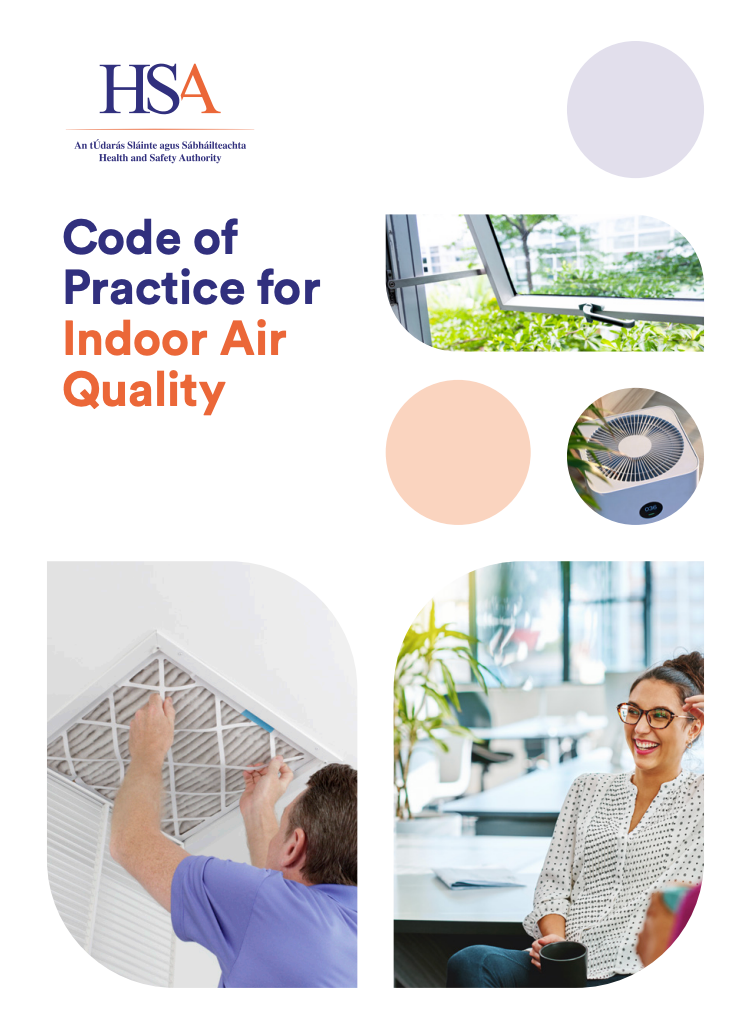Air quality can impact your workplace and general health more than you may initially think it would. People are often left unaware of the air quality around them and of the harm that poor air quality can have on your health. Many people also have no idea of the environmental impact of poor air quality.
It is becoming increasingly important for people to understand the impact of poor air quality and how they can check their air quality to keep themselves as safe as possible. It is also critical for the public to be able to spot the signs of
poor air quality and be able to combat this. In this article, we will explore the different tests that can be carried out to test air quality and provide solutions that can be used to improve air quality.
Why Is Air Quality Important

Many people don’t give a second thought to the air quality around them. The average human inhales approximately 13kg of air daily. If the air around us is impure, it can potentially force us to inhale some dangerous chemicals, gases and particles. Air pollution is invisible and is extremely easy to ignore if you choose to, but this doesn’t mean it doesn’t exist. Air pollution is very real and can potentially be dangerous if someone is consistently exposed to poor air quality.
When we are indoors, the air we breathe is often much more damaging than the polluted air outside. This makes it much more hazardous to not check air quality when we are indoors. The good thing is that while we are indoors, we have much more control over our environment and can influence air quality much more directly.
Testing Air Quality
Use Indoor Air Quality Monitor
If you’re looking for a quick, easy and cost-effective way to test the air quality of your indoor environment, an air quality monitor is the best way to do it. Monitoring levels of air pollution is a key step towards taking back control of the air pollution levels in your home or workplace. An air quality monitor can test many variables in the air, including:
- Humidity.
- Temperature.
- Carbon Dioxide (Co2)
- Particular Matter PM2.5 (dust, other allergens, and particles in the airspace).
- Levels of particulate matter
- Air Quality Index
Co2 is one of the main issues internally as it affects the performance of people in offices, schools, meeting rooms and more. Remove it and you will certainly increase performance, attention levels, productivity, profits and the health of those who use the space, making air quality monitoring a must!
Install Carbon Monoxide Alarms
Some of the most dangerous things that can hurt us indoors are not visible. Carbon monoxide is very high on that list and should be treated with the utmost seriousness. Carbon monoxide alarms consistently monitor the air to ensure carbon monoxide levels are safe and the occupants of the building are not in danger.
A carbon monoxide alarm is a cost-effective and important tool that can save lives in your home or workplace.
Air Purifiers
There is an increasingly prominent worry regarding the levels of air pollution we are breathing in, and this is only becoming a more significant issue as time goes on. As we pay more attention to how air can affect our general health, we must look for ways to combat this and clean the air around us. This is where an air purifier comes into its own.
With air indoors not circulating nearly as much as outdoor air, it is important to be able to refresh stale air and reduce the chance of air pollutants affecting your health. Indoor air pollutants can seriously affect you, aggravating pre-existing conditions like asthma and causing respiratory problems to take hold. Air purifiers eliminate this worry, cleaning and recycling the air to eliminate the threat caused by many different kinds of air pollutants.
Vacuum Cleaner
When we look at air pollutants, dust is one of the most common things that can affect air quality. When dust is inhaled, it can cause respiratory problems and cause long-term problems like triggering asthma. Dust can become an issue when disturbed and sent into the air from walls and floors. The easiest way to combat this and ensure you minimise the risk that dust poses is by using a vacuum cleaner.
Using a vacuum cleaner regularly eliminates the risk of a build-up of dust being sent into the air and getting into the lungs of you and your colleagues. Using a vacuum cleaner will not completely eliminate air pollutants. Still, it will significantly reduce the amount of debris being sent into the air and inhaled. It effectively manages air pollution levels and ensures no dust or other debris can become unsettled and further damage pollution levels.
Dust & Weld Fume Extractor
When working in the construction industry, dust and fumes from machinery become commonplace and difficult to work with. Fumes can be dangerous when inhaled regularly and cause respiratory problems if not managed properly. In this case, having a Dust and Weld Fume Extractor at your disposal can be a major help.
Extractors can quickly and effectively remove most of the dangerous fumes and debris from the air, leaving you with a healthy workplace and clean air. If you need to combat a constant stream of fumes and debris in your air and need to remove this on an industrial scale, an extractor will be perfect for you.
Call A Professional
It can be challenging to keep on top of your air quality, and it can be important to know where to start. When it comes to safety in the workplace, air quality is an element that seriously goes under the radar. With air quality being such an important section of workplace safety, calling in professionals that know what they’re doing to make your workplace safer can help.
Here at Ultra Protect, we are specialists in air quality and are dedicated to providing you with the highest-quality advice to help you on your road to a safer office and more pure air. By getting the right advice from the right source, you ensure that you can take your first step in the right direction towards a safer and healthier environment.
If you have any questions about how we can help you bring your indoor air quality up to top condition,
get in touch! Our team of air quality experts are happy to answer any questions you may have. Alternatively, you can browse our wide range of
air quality equipment. Take the first steps towards cleaner air and a happier working environment today!
Related Articles
We hope you found this piece helpful and insightful. If you did, here are some other articles that we think would be perfect for you:







